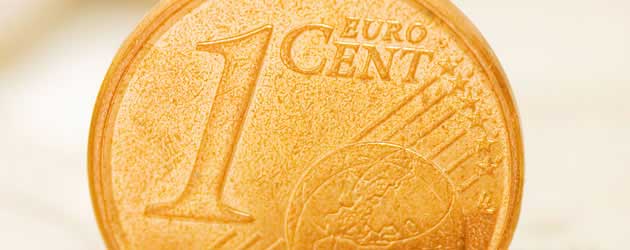
Yesterday the Euro achieved a 7-week high against a broadly softening US Dollar as gold prices experienced a rebound and investors’ appetite for riskier assets returned.
The Euro Exchange Rate was in the region of 1.3182 against the US Dollar as of 11:01 am
The Euro achieved 1.3183 against the US Dollar yesterday, a 7-week high, and trading in a similar region today despite Eurozone construction output falling for a fourth consecutive month in February.
Stabilising gold prices and positive US data aided the Euros climb on Tuesday. With US housing starts and industrial production figures rising at a faster pace than expected last month, recent concerns regarding the state of US economic recovery were eased slightly.
The Euro received additional support from the expectation that higher-yielding assets would continue to be boosted by the Bank of Japan’s decision to double monthly bond purchases.
Against the British Pound the Euro also gained, and the common currency was able to modestly extend advances following the release of disappointing UK employment figures.
Construction output in the Eurozone fell by 0.8 per cent in February, following on from January’s revised decline of 1.4 per cent. Output fell most significantly in Germany, the largest economy in the 17-nation currency bloc.
Yesterday German Chancellor Angela Merkel asserted that sacrifices would have to be made if the Eurozone is to recover from the ongoing debt crisis.
Merkel stated: ‘We know that there will have to be sacrifices in many countries. But I believe that in the long term we’ll have to have a growth strategy without always having to pile on debt.’
The Chancellor was keen to highlight that sustainable growth will only be achieved through regaining market confidence and consolidating budgets.
She continued; ‘I’m often surprised that as a matter of course it’s often said in many parts of the world – even after the financial crisis of 2008, 2009 – that the main thing is that we’re growing again, at whatever cost. The piling up of debt is often made into a type of obligation to serve the principle of growth. All of that is false. It’s not sustainable in the long term.’
An absence of economic news for the Eurozone tomorrow means that additional Euro movement is most likely to occur in response to global economic developments.

Comments are closed.